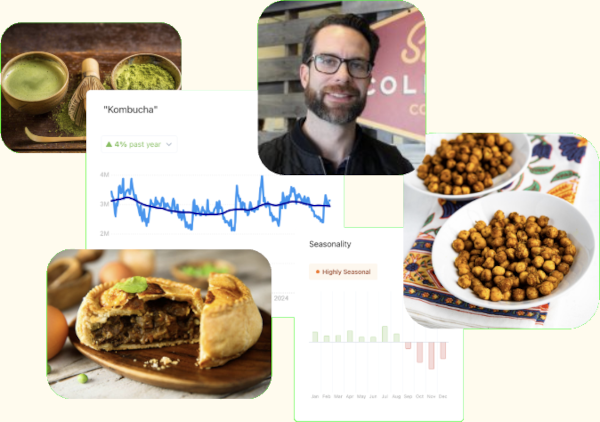Category Analysis - E-Liquid

Overview of the E-Liquid Industry
The e-liquid industry, often referred to as the vaping industry, has experienced a meteoric rise since the mid-2000s. Emerging from humble beginnings, it now holds a substantial share of the global market, catering to millions of customers drawn by an increasingly varied array of flavours and nicotine strengths. According to Statista, the global e-liquid market was valued at approximately $9.3 billion in 2021 and is expected to reach $30 billion by 2028, emphasizing its rapid expansion.
The success of the e-liquid industry can be attributed to a confluence of factors including the growing demand for alternatives to traditional tobacco products, increased health awareness among consumers, and continuous innovations from manufacturers. As legislation in various nations has begun to favour e-cigarettes over combustible tobacco, the industry has seen burgeoning interest from former smokers seeking less harmful options.

Recent Trends and Changes
As the e-liquid sector matures, several pivotal trends have emerged. Firstly, there has been a marked shift towards premium e-liquids, often characterised by high-quality ingredients and elaborate flavour profiles. Flavours have evolved from simple tobacco and mint options to exotic concoctions that include fruity blends, desserts, and even beverages.
Moreover, there is a significant push towards nicotine salt formulations. These e-liquids provide a smoother throat hit and allow for higher nicotine concentrations without the harshness associated with traditional freebase nicotine. This trend aligns well with the increased sophistication of the vaping consumer base, who demands products that cater to their refined tastes.
Another noteworthy trend is the increasing scrutiny from regulators worldwide. As governments seek to safeguard public health, policies regarding liquid composition, packaging, advertising, and sale have tightened. Countries such as the UK and EU member states have implemented stringent regulations, including the Tobacco Products Directive (TPD), affecting product formulations and marketing strategies.
Shift to Online Sales
The pandemic has accelerated the e-liquid industry's shift towards e-commerce, with many consumers preferring the convenience of online shopping for their vaping needs. This change has prompted brick-and-mortar shops to adapt their business models, often expanding into online sales to capture this new consumer behaviour.
The Economics of the E-Liquid Industry
The economics surrounding the e-liquid market is a complex interplay of supply and demand dynamics, regulatory impacts, and global economic influences. The industry has witnessed significant growth momentum, reflected in the surge of new entrants into the market, including smaller, local producers seeking a slice of the expanding pie.
However, this growth is paired with inherent challenges. For instance, the rise in competition has not only led to a crowded marketplace but also to price wars, straining profit margins particularly among smaller brands. Market consolidation is another noticeable trend; larger corporations are acquiring emerging brands to expand their product portfolios and distribution channels.
Furthermore, the introduction of tax measures on e-liquids in various jurisdictions has impacted pricing strategies. For instance, the UK government's proposed taxation on e-liquids has sparked concern among retailers regarding a potential decline in sales as prices rise.
Market Contraction
Despite the overall positivity in terms of industry growth, there have been contractions noted in certain regions, particularly where regulatory pressures have led to product bans. The decline of disposable e-cigarettes in certain markets has resulted in companies re-evaluating their product lines to adapt to consumer preferences and regulatory requirements.
Major Players in the E-Liquid Market
Numerous entities dominate the e-liquid landscape, each contributing to the sector's vibrancy through innovation and market share. Prominent players include JUUL Labs, which achieved significant success after its inception and remains a major influencer in the nicotine vaping segment despite ongoing scrutiny and regulatory challenges.
Other well-known brands include Vaporesso and Naked 100, both respected for their high-quality e-liquids and unique flavour offerings. FQ Vape is another notable mention, focusing on innovation in both product design and flavour development.
Emerging Innovators
While established names garner significant attention, grassroots brands are beginning to capture the imagination of discerning consumers. For instance, The Vape House has built a loyal following through its artisanal approach to crafting small batch e-liquids. Such innovators often emphasize transparency in sourcing and manufacturing processes, appealing to a clientele increasingly concerned about the origins of their products.
Looking Ahead: Future of the E-Liquid Industry
The future of the e-liquid industry holds both promise and uncertainty. As technological advancements continue to evolve product offerings, industry players must remain agile to navigate the complexities of regulations and shifting public perception. The rising trend towards sustainability is likely to shape the next wave of innovations, with eco-conscious consumers increasingly favouring products that align with their values.
Moreover, an increase in health-related research is poised to influence product formulations. The potential for developing harm reduction options could lead to broader acceptance of vaping as a bona fide alternative to smoking, shifting perceptions in the public and among policymakers.
Conclusion: A Bumpy Road Ahead
In summation, the e-liquid industry stands at a crossroads—brimming with potential but fraught with challenges. If stakeholders can successfully navigate the regulatory landscape, foster innovations that resonate with consumers, and demonstrate a commitment to heightened safety standards, the future may indeed be bright. As with any thriving sector, the e-liquid industry must adapt, evolve, and sometimes embrace a bit of British tenacity to excel.
Example Products in this Category:
Brands in this Category:
| Name | Story | Brand Categories | |
|---|---|---|---|
| Name | Story | Brand Categories | |
| wildrootseliquid | At Wild Roots we believe in creating bold and natural flavours with a conscience. All of our e-liquids are vegan-friendly, as well as lactose and gluten-free. Plus, our nic salt range is manufactured with less packaging than other brands on the market! | Shortfills,Salts,Vegan-friendly products,Natural flavors,Vaping,E-Liquids | |
| Vapeway Lounge | Vapeway Lounge is dedicated to providing a wide range of high-quality vaping products, including e-liquids and devices, with a focus on customer satisfaction and convenience. | E-Liquid,Nicotine Salts,Vape Kits,Disposable Devices,Coils,Pods |

























